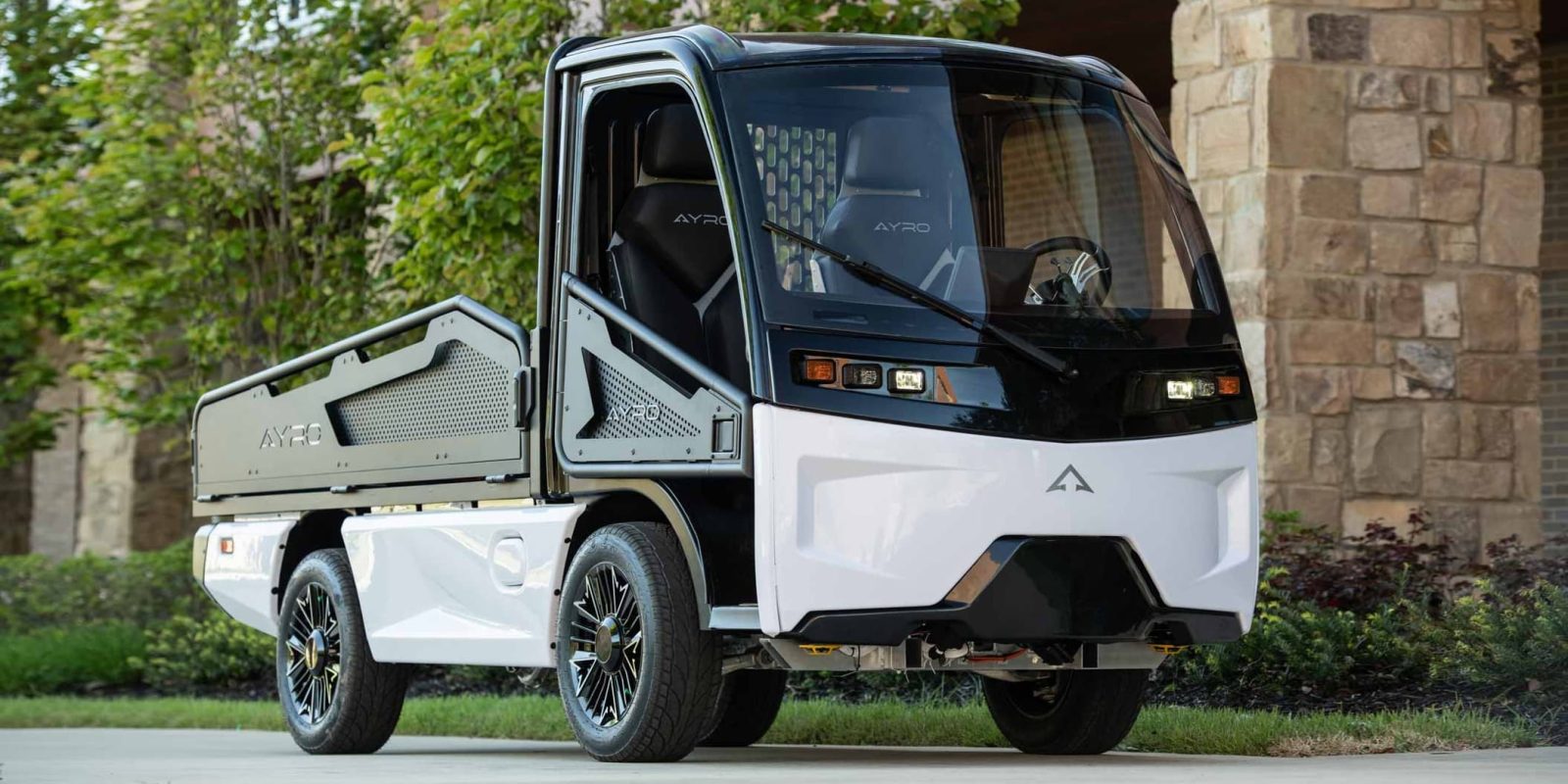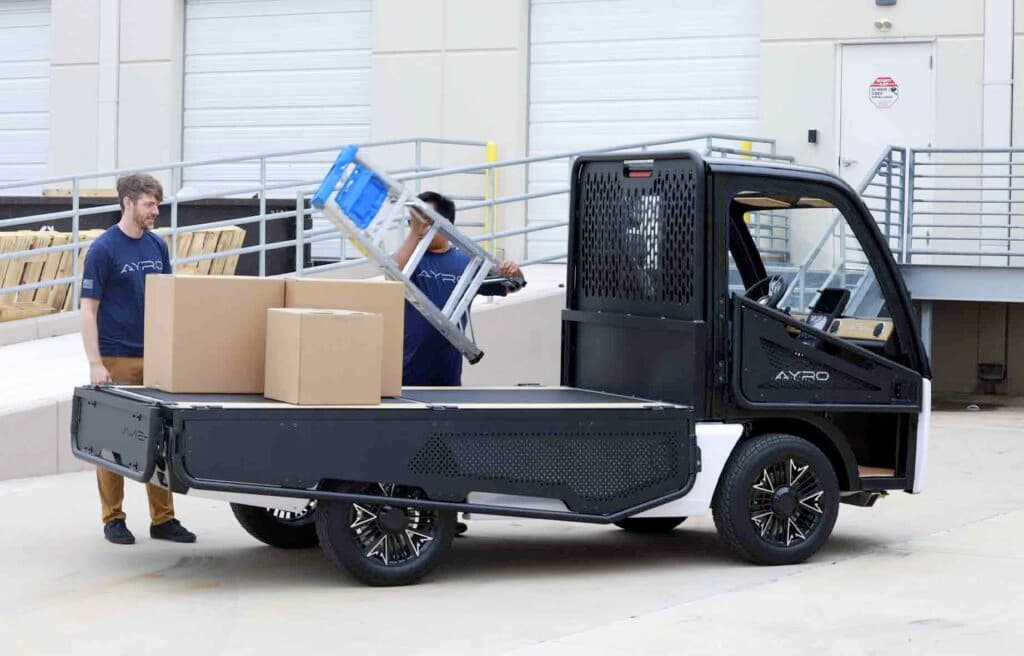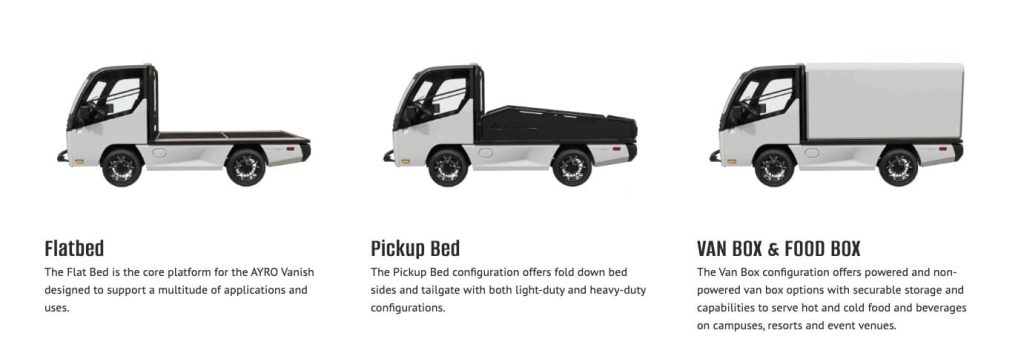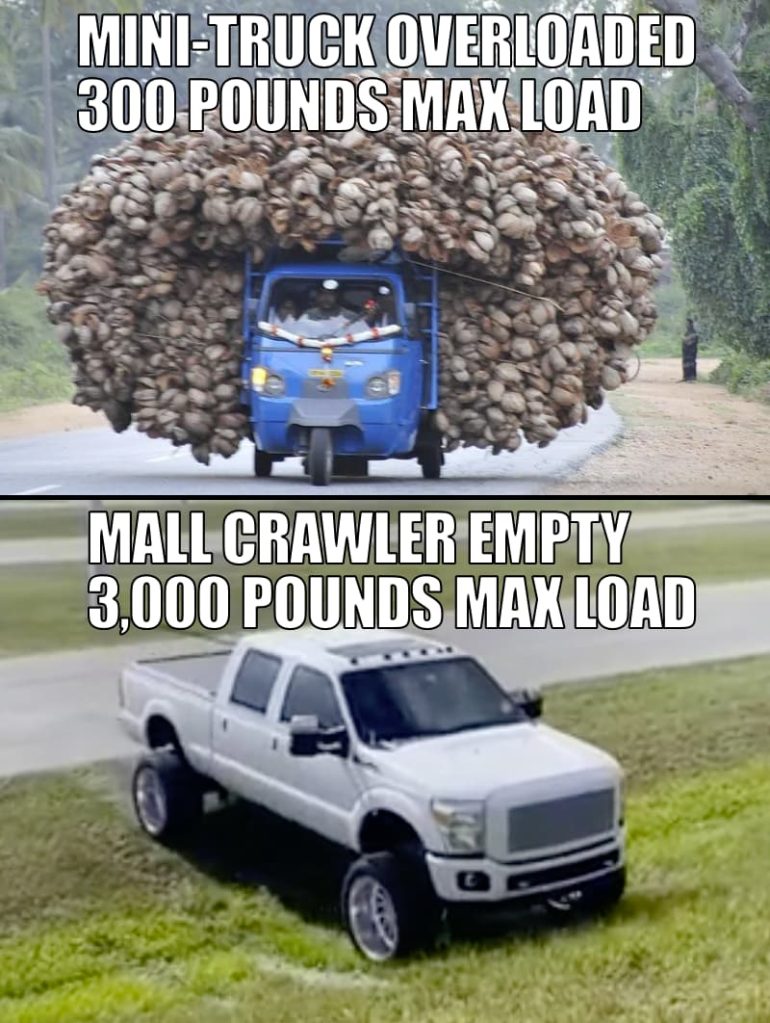
The AYRO Vanish, an electric mini-truck designed and built in Texas, has just completed homologation to receive its street-legal status in the US and Canada.
Homologation is the process that new vehicles undergo to test and verify that they meet or exceed vehicle regulations.
In the US, that means the AYRO Vanish had to be homologated to LSV (low-speed vehicle) standards set out in the Federal Motor Vehicle Safety Standards, as mandated by the US National Highway Traffic Safety Administration. Canada uses very similar regulations set out in the Canadian Motor Vehicle Safety Standards.
Passing its homologation tests was a key step ahead of upcoming deliveries, explained AYRO’s CEO Tom Wittenschlaeger:
These tests are essential to ensure vehicles meet rigorous safety requirements and comply with our national governing bodies. Now that our award-winning Vanish has passed these tests for design, safety, and performance, we are one step closer to delivering vehicles to our customers and dealers.

The company opened pre-orders for the Vanish back in May, when a $250 deposit through AYRO’s online configurator secured reservation holders a spot in line for the US $33,900 vehicle.
Unlike Europe and Asia, North America has a distinct lack of mini-trucks. The US has no shortage of mall-crawlers and concrete cowboys sticking several feet out of their parking spaces, but mini-trucks are hard to come by.
AYRO is trying to change that with the launch of its 2023 Vanish, which is built at its Round Rock, Texas, factory.
The Vanish is a multi-role EV thanks to its modular design. The base Vanish comes with the “common core chassis,” which is basically a pint-sized flatbed truck, but there are multiple options for loadouts that can help customize it for various utility tasks.
The flatbed is likely a good candidate for all-around hauling needs, especially with oversized loads. But operators can also spec the AYRO Vanish with a fold-down tailgate and side gates for a pickup-style bed to help contain loose cargo. There’s also an enclosed cargo box to create something of an electric mini box truck or cargo van.
The street-legal variant of the Vanish is limited to 25 mph (40 km/h) top speeds as part of the LSV safety standards. However, a non-street-legal variant will be available with a higher top speed for private land users such as campuses, factories, and industrial parks.

Electrek’s Take
Top comment by Doug Collins
You would be the most popular person in the neighborhood if you owned a Vanish. Everyone would want to borrow it for their home improvement projects.
More electric mini-trucks can’t come soon enough. Frankly, I don’t even care if they’re US-built or not (mine isn’t), the US just needs more of these things, pronto!
But being US-built is definitely a bonus. It’s not just the advantage of having local service and support, but also knowing that you’re helping grow local manufacturing and creating more jobs.
Wherever they come from, these small work trucks need to start being more common in the US. Sure, I get jokes all the time about my own mini-truck that lives on my family’s ranch, and is around 5:8 scale next to an F-150. But I can tell you mine does a lot more hard work every day than an average F-150. In the rest of the world, mini-trucks are serious workhorses. They’re lower to the ground to facilitate easier loading and unloading, they fit better in crowded areas, they are easer to maintain, and you don’t have to worry about scratching the tailgate on your $75,000 pickup. In fact, there are tailgates that cost more than my mini-truck.
All around the world, mini-trucks are the go-to for everyday deliveries, city-hauling, and other vehicular labor. They’re not going to climb the Rubicon Trail, but then again neither do most pickup trucks in the US either. They can’t replace all general truck jobs in the US, but they sure can replace most of the local urban ones. So I’m excited to see the AYRO Vanish make it one step closer to deliveries. It ain’t cheap, but neither is any first-generation technology. Tesla had to start with a $100,000 Roadster before it could eventually make a $35,000 car. It may not look like it, but this could be the Roadster of the US mini-truck industry.

FTC: We use income earning auto affiliate links. More.





Comments